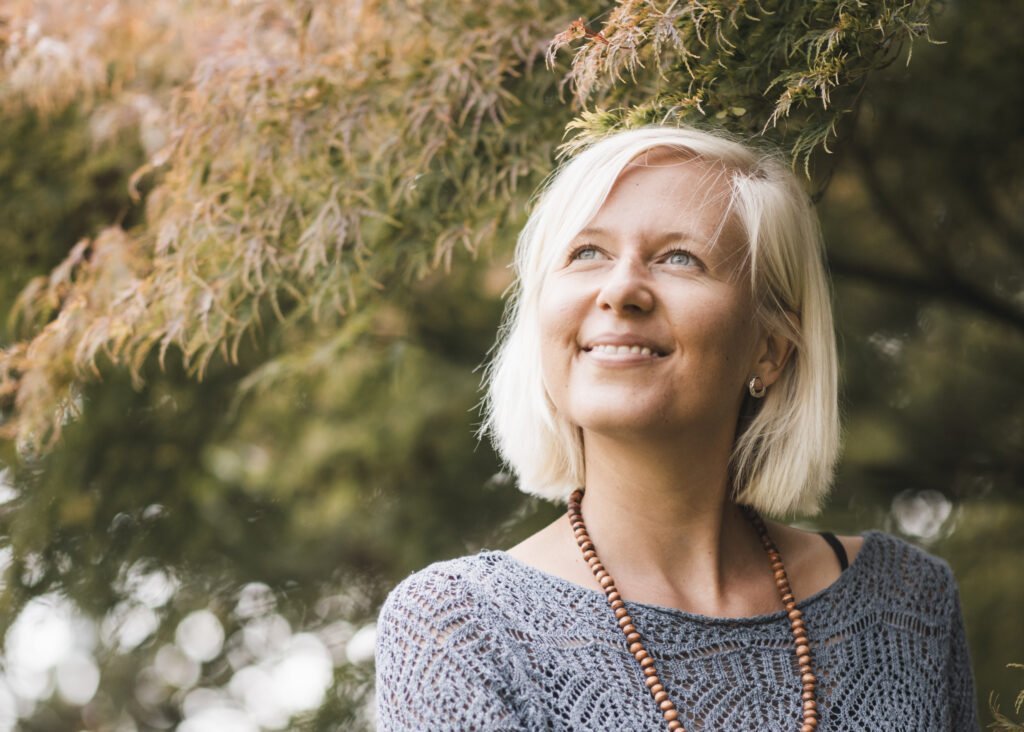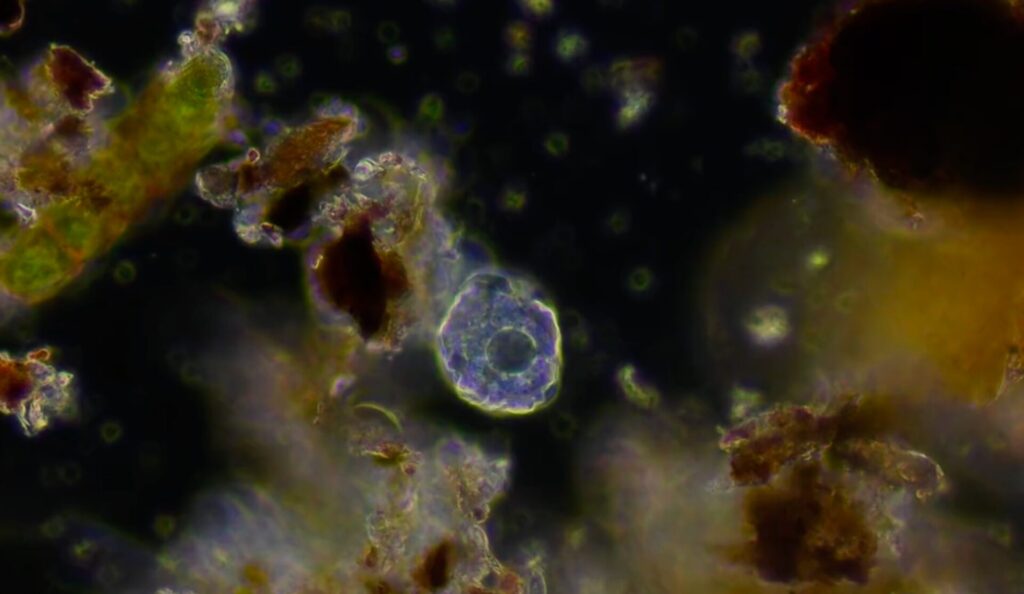Wilder Land: “Our ambition is to become a regenerative Unilever”
“The Netherlands is leading the rankings of biodiversity loss in Europe. If that is to change, we must start with the country’s biggest land stewards: the farmers,” says Matthijs Westerwoudt. Together with Daan van Diepen, he founded Wilder Land – a regenerative enterprise that pays farmers fairly to cultivate unsprayed native crops and transforms the harvest into nourishing products. “Our ambition is to become a regenerative Unilever.”
“The American oak has stood in our Dutch landscape for centuries, but as a non-native species it draws only around fifteen types of insects. By contrast, the native European oak attracts some 450,” explains Matthijs. “Planting more native species – trees, herbs and wildflowers – is by far the most effective way to restore biodiversity, because they bring insects. And once the insects return, the birds and other wildlife follow.”
Uitgelichte quote
We focus on building markets for native products


The trouble is that in a landscape dominated by monocultures, there is little room left for native biodiversity. “For insects it becomes almost impossible to find food, which threatens not only the vitality of nature but also our food production,” says Daan. “Without bees, for example, we can’t grow tomatoes or aubergines. Human survival is directly dependent on biodiversity.”
But carving out space for native species on farmland is not straightforward. “Farmers can only grow things like chamomile, plantain or dandelion if they’re paid to do it – then they become crops. Otherwise they remain ‘weeds’, and farmers simply can’t afford that, because they’re already earning next to nothing,” Matthijs explains. “That’s when we realised: we need a business model for biodiversity.”
Uitgelichte quote
A farmer just wants to grow crops and make a decent living. If they can do that with unsprayed native plants, they will


A fair price for biodiversity
Today, Wilder Land pays dozens of farmers a fair price – above the market rate – to cultivate native herbs, plants, shrubs and trees. From the harvest, the regenerative company produces herbal teas, kombucha, beer, syrups and granola. “We work with tea sommeliers, brewers, syrup-makers and bakers so that we can focus on building markets for native products,” Matthijs says. “Our ambition is to become a regenerative Unilever, where every product makes one promise: it helps to restore nature.”
Uitgelichte quote
Within months you find bees, wildflowers, butterflies, rabbits and flocks of birds
Resilience
Daan and Matthijs have learned to marvel at nature’s resilience. Once space is given, life quickly returns. “You see it clearly on the farms we work with,” says Daan. “Within months you find bees, wildflowers, butterflies, rabbits and flocks of birds. Next door, on farms without native crops, it stays silent.”
That’s partly because Wilder Land opts not only for native crops but also unsprayed ones, sown in strips rather than monocultures. “It doesn’t matter to us whether you farm organically or conventionally,” Matthijs stresses. “With us, farmers can take their first step towards biodiversity – and if that works, often a second or a third.” Some who began with just a few strips of herbs and flowers have since embraced agroforestry. Neighbouring farmers are often inspired too, Daan adds: “Once you see how valuable it is to work with nature, you want to try it yourself.”
“If consumers choose unsprayed Dutch chamomile, or hazelnuts from Dutch agroforestry farms, then suddenly there’s space in the landscape to grow these things – that’s how simple it is,” Matthijs points out. “A farmer just wants to grow crops and make a decent living. If they can do that with unsprayed native plants, they will.”
Uitgelichte quote
Supermarkets want to force prices down, but they won’t cut their own margins – so the bill falls to the farmer


True pricing
“The paradox of our time is that it would be far more profitable for us to import all our herbs from India. Or to pay one Dutch farmer to grow a monoculture of chamomile,” Matthijs reflects. “Ecologically, our products are highly efficient – but economically they’re inefficient, because the real costs of transport or biodiversity loss aren’t included in the price of sprayed products from faraway places.”
“Supermarkets want to drive prices down, but not cut their own margins, so they shift the burden onto farmers,” Daan adds. “And the farmer, in turn, is forced to pass it on to nature in order to survive. That’s why we’re constantly asking ourselves: what price do we need to pay the farmer so they can work for biodiversity, while still keeping products affordable for consumers? It’s a huge puzzle – but in the end, it can be solved.”
Uitgelichte quote
We should value nature again. Not for what it gives us, but simply for what it is

The power of local
According to Daan and Matthijs, people need to reconnect with the land, their food and the farmers who grow it. Matthijs: “Go and help with a harvest, go and see for yourself, talk to your farmer. Then you’ll notice the butterflies, bees and insects – and also how much work it takes to produce food in harmony with nature. That makes you more willing to pay the true price for your groceries.”
“Ultimately, the great challenge is: how do we get people to want to choose local and regenerative food?” says Daan. For him, it also requires a change in mindset: “Nature holds more than four billion years of knowledge about how best to do things. If you take the time to study that, you can make a real difference. That’s what I want to keep doing for the rest of my life.”
Uitgelichte quote
Once you see how valuable it is to work with nature, you want to try it yourself


The future
Over the next decade, Wilder Land hopes to move beyond edible products from native crops into skincare. “And ultimately we want to bring back non-edible native plants, herbs and trees into the Dutch landscape as well – by combining, for instance, recreation with agroforestry,” Matthijs says. “So that we learn to value nature again: not for what it gives us, but simply for what it is.”


Want to contribute to biodiversity yourself?
- Do your shopping with Wilder Land or with an organic, biodynamic or regenerative farmer. You can find the Dutch ones on our map.
- Pull up the paving slabs from your garden, avoid pesticides and artificial fertilisers, disconnect your drainpipe, and sow native flowers, herbs, plants or trees. While you’re at it, regreen your street, neighbourhood or city.
- Support organisations like Commonland and Ecosystem Restoration Communities, who restore landscapes through regenerative agriculture worldwide.
Originally published: 12 March 2023. Latest update: 3rd of September 2025.



